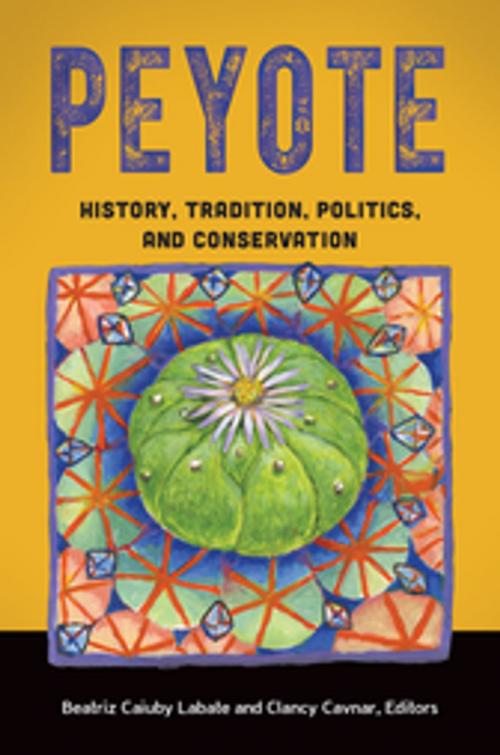Peyote: History, Tradition, Politics, and Conservation
Nonfiction, Health & Well Being, Health, Alternative & Holistic Health, Herbal Medications, Alternative Therapies| Author: | ISBN: | 9781440834011 | |
| Publisher: | ABC-CLIO | Publication: | January 18, 2016 |
| Imprint: | Praeger | Language: | English |
| Author: | |
| ISBN: | 9781440834011 |
| Publisher: | ABC-CLIO |
| Publication: | January 18, 2016 |
| Imprint: | Praeger |
| Language: | English |
Why is mescaline—an internationally controlled substance derived from peyote—given exemptions for religious use by indigenous groups in Mexico, and by the pan-indigenous Native American Church in the United States and Canada? What are the intersections of peyote use, constitutional law, and religious freedom? And why are natural populations of peyote in decline—so much so that in Mexico, peyote is considered a species needing "special protection"? This fascinating book addresses these questions and many more. It also examines the delicate relationship between "the needs of the plant" as a species and "the needs of man" to consume the species for spiritual purposes.
The authors of this work integrate the history of peyote regulation in the United States and the special "trust responsibility" relationship between the American Indians and the government into their broad examination of peyote, a hallucinogenic cactus containing mescaline that grows naturally in Mexico and southern Texas. The book's chapters document how when it comes to peyote, multiple stakeholders' interests are in conflict—as is often the case with issues that involve ethnic identity, religion, constitutional interpretation, and conservation. The expansion of peyote traditions also serves as a foundation for examining issues of international human rights law and protections for religious freedom within the global milieu of cultural transnationalism.
Why is mescaline—an internationally controlled substance derived from peyote—given exemptions for religious use by indigenous groups in Mexico, and by the pan-indigenous Native American Church in the United States and Canada? What are the intersections of peyote use, constitutional law, and religious freedom? And why are natural populations of peyote in decline—so much so that in Mexico, peyote is considered a species needing "special protection"? This fascinating book addresses these questions and many more. It also examines the delicate relationship between "the needs of the plant" as a species and "the needs of man" to consume the species for spiritual purposes.
The authors of this work integrate the history of peyote regulation in the United States and the special "trust responsibility" relationship between the American Indians and the government into their broad examination of peyote, a hallucinogenic cactus containing mescaline that grows naturally in Mexico and southern Texas. The book's chapters document how when it comes to peyote, multiple stakeholders' interests are in conflict—as is often the case with issues that involve ethnic identity, religion, constitutional interpretation, and conservation. The expansion of peyote traditions also serves as a foundation for examining issues of international human rights law and protections for religious freedom within the global milieu of cultural transnationalism.


![Cover of the book Sacred Texts Interpreted: Religious Documents Explained [2 volumes] by](https://www.kuoky.com/images/2017/october/300x300/9781440841880-0RqY_300x.jpg)












